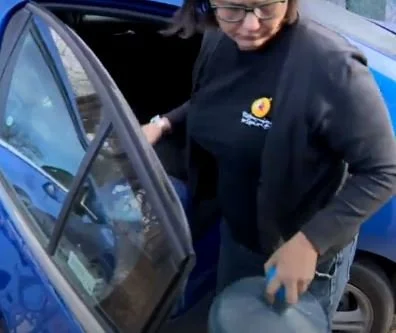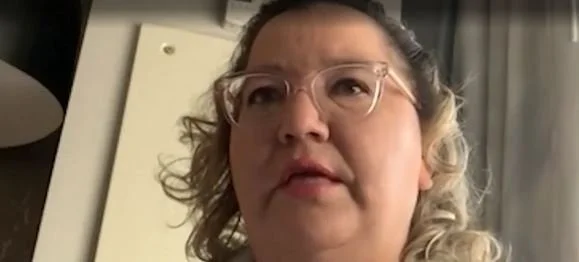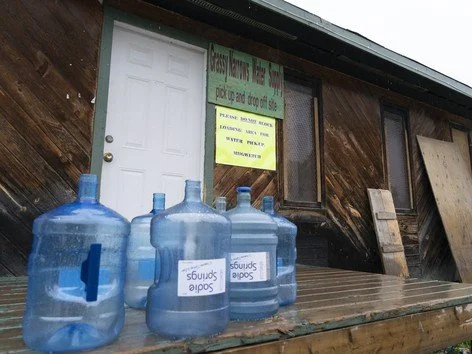Today, Northwest Angle No. 33's Angle Inlet community site held celebrations following the completion of a new water treatment plant for Angle Inlet. Chief Darlene Comegan and the Honourable Patty Hajdu, Minister of Indigenous Services, announced today that with the water treatment plant complete, the community lifted three long-term drinking water advisories. The new centralized water treatment plant will provide reliable access to safe and clean drinking water for 100 residents. The water treatment plant meets the community's current needs and has the capacity to support future population growth over the next 20 years.
Statement by the Prime Minister on World Water Day
Today, as we join the international community to mark World Water Day, we are reminded of our shared responsibility to protect access to clean, safe water here at home and around the world. There is no resource more essential to Canadians and the Canadian economy than clean water. Water ecosystems, when managed properly, help alleviate hunger, poverty, and illness, fight climate change, and support biodiversity. This year’s World Water Day theme, ‘Accelerating Change’, asks us to speed up our action to keep our water safe, clean, and sustainably managed.
‘We have to fix it faster’: 28 First Nations communities still under boil water advisories
Wednesday marks World Water Day, a day raising awareness of the more than 2 billion people around the world living without access to safe water, including many First Nations communities in Canada. The federal government says 138 long-term drinking water advisories have been lifted since November 2015, although some short-term boil water advisories have also slipped into the long-term category during that timeframe.
‘Agreement is coming’: Oneida Nation of the Thames to announce water deal with Government of Canada
Oneida Nation of the Thames First Nation (ONTFN) has been under a boil water advisory since 2019. However, the first steps in the slow process of changing that are expected shortly. “There is an agreement coming, it's just at the table now,” said ONTFN Chief Todd Cornelius. “We're expecting to inform our community soon of the agreement.” Cornelius was tight lipped about the timeline, but CTV News has learned an announcement is imminent.
Manitoba Chief speaking at United Nations 2023 Water Conference SharePlay Video Manitoba Chief speaking at United Nations 2023 Water Conference
First Nations, individuals now have until March 7 to claim compensation for water advisories
In 2021, Federal Court approved a class-action settlement between Canada and several First Nations that were subject to long-term drinking water advisories from 1995 to 2021. Now, settlement negotiators have extended the deadline for First Nations to submit a claim until March 7. If the Band Council Acceptance Resolution that a First Nation files with the settlement administrator is accepted, it will receive a $500,000 base payment and be eligible for additional payments of up to 50% of the amounts paid to eligible individuals in the community.
Rights group releases scathing report on Canada's violations of Indigenous rights
A prominent human-rights group says Canada is failing to address long-standing abuses, delivering a rebuke of what it calls the federal government’s inadequate climate policy and violations of the rights of Indigenous people and immigration detainees. Human Rights Watch says more than two dozen First Nations remain under long-term drinking water advisories, despite Prime Minister Justin Trudeau’s promise to bring that number down to zero.
Battle stations, everyone
Canada has lifted 137 long-term drinking water advisories on reserves since November 2015. That’s equal to 82 percent of long-term advisories in the last seven years, the government claims. Still, the Liberals fell short of their promise to lift all drinking water advisories by March 2021. There are currently 31 long-term advisories still in place in 27 communities. And a document tabled this week in the House of Commons shows the work doesn’t end once an advisory is lifted. According to the document, tabled in answer to a question from Conservative MP GARY VIDAL, four First Nations have seen long-term drinking water advisories recur on five water systems that previously had advisories lifted.
Individuals who lived on a First Nation that had a long-term drinking water advisory for more than a year are encouraged to submit a claim for compensation
The First Nations Drinking Water Settlement provides compensation for First Nations impacted by long-term drinking water advisories that lasted continuously for at least one year between November 20, 1995 and June 20, 2021. Compensation is available for individuals and includes additional compensation for health harms (Specified Injuries) sustained by those following drinking water advisories. Personal representatives can claim on behalf of eligible minors, those with mental incapacity (under disability) and those who passed away on or after November 20, 2017. The deadline for individuals to submit a claim is March 7, 2023.
Phase three of safe drinking water improvement begins in Tyendinaga Territory
The Mohawks of the Bay of Quinte – Kenhtè:ke Kanyen’kehá:ka will soon have more reliable safe drinking water at 320 more residences thanks to 21 kilometres of new water main infrastructure. Chief Donald Maracle and the Council of the Mohawks of the Bay of Quinte (MBQ) hosted a sod-turning ceremony on Monday, Oct. 3, 2022, at the corner of Beach Road and Young Street in Shannonville, marking the beginning of the third phase of the project, which has the long-term goal of contributing to the lifting of five long-term drinking water advisories in the community.
Indigenous community, water advocates, moving ahead on drinking water solutions
An innovative way to bring clean water to indigenous communities is being installed in homes at a reserve not far from Toronto. The project is an early step in a plan that advocates hope will eventually spread across Canada. “Water is a basic human right no matter how rich or poor we are, where we come from, what the colour of our skin is we all deserve clean drinking water,” said water rights advocate Autumn Peltier.
Feds announce $11B towards housing, reconciliation and residential school support
Clean drinking water Another omission from the 2022-2023 budget is the projected $8 billion payout as part of a class-action suit regarding long-term, on-reserve boil water advisories. But according to the budget, the overall drinking water situation is improving – despite missing their initial 2021 target to lift all long-term boil-water advisories in communities across Canada. Indigenous Services Canada (ISC) data indicates 131 long-term drinking water advisories have been lifted since 2015, and “initiatives are underway” to resolve the remaining 34. To this effect, the government is allocated $398 million over two years to ISC to “support community infrastructure on-reserve.” At least $247 million of this amount will be directed toward water and wastewater infrastructure, according to the budget outline.
Ryan Reynolds, Blake Lively donate to help get clean drinking water on all reserves, buoying U of A effort
Hollywood couple Ryan Reynolds and Blake Lively donated $500,000 to a Canadian Indigenous clean drinking water initiative, buoying efforts by a group of University of Alberta (U of A) graduate students. The Student Advocates for Public Health (SAPH), a group of U of A grad students, hosted a media availability last week calling for clean drinking water for all Indigenous communities throughout the country. During the media availability, Randal Bell, a member of SAPH, said 43 per cent of all First Nations drinking water systems in Canada are currently labeled as medium to high risk of contamination, with 36 long-term drinking water advisories in effect as of March 14. The goal of the event was to bring awareness to the situation and Bell said seeing high-profile people step up with donations means a lot.
Multi-billion dollar settlement means safe drinking water no longer a matter of goodwill
A promise made by the Trudeau Liberal government in 2015 to get rid of all long-term drinking water advisories on First Nations has been strengthened by a class action settlement. “It’s a legal obligation now,” said counsel Harry LaForme of Olthuis Kleer Townshend (OKT). “That whole notion that the water issue is a political issue to do the best they can and is not enforceable by law, for the 250 (First Nations) we have, that’s now changed,” said LaForme. “Their promise, at least to the class members that we have, is now no longer just their goodwill.”
Campaign pushing for clean "effing water" in Indigenous communities gains steam
A campaign that was launched in December has started to gain steam, and the aim is to make people “give a f*ck” about Indigenous communities that don’t have clean drinking water. The censored version of the campaign is called “It’s Effing Water,” and it was started by social impact agency Public. The campaign suggests that there are nearly 70 Indigenous communities that are still without clean drinking water, and a petition to try and elevate the issue at a national level has gained almost 50,000 signatures.
Canada to compensate First Nations for decades of dirty water
It’s Tuesday, January 5, and Canada is spending billions on clean drinking water for First Nations communities. Tens of thousands of Indigenous people in Canada have spent decades without reliable access to clean drinking water. Now, the Canadian government has plans to put it right. A court-approved settlement released late last month commits Canada to spending more than $4 billion on improvements to drinking water infrastructure at hundreds of Indigenous reserves throughout the country. Another $1.18 billion will be provided in damages to some 140,000 First Nations people who have lived under drinking water advisories for longer than a year, often under orders to boil water to avoid potential contamination from bacteria like E. coli.
Work is ongoing to end remaining long-term drinking water advisories: Trudeau
Prime Minister Justin Trudeau says his Liberal government remains committed to ending all long-term drinking water advisories that exist on First Nations, despite not setting a new date to do so. Trudeau discussed the work done up to now on the issue during an address Thursday to a virtual gathering of chiefs with the Assembly of First Nations (AFN). To date, he says, the Liberals have helped lift 120 long-term drinking water advisories. A government website reports there are 42 such advisories still in place in 30 different communities.
Not enough money coming from federal government to maintain Indigenous water treatment systems: PBO report
The Trudeau government has not set aside enough money to maintain and operate water treatments systems in Indigenous communities, according to a new report from the parliamentary budget officer. While the Liberals have more than enough money to build the systems, they are $138 million a year short on providing help to First Nations to maintain them, said Yves Giroux. Canada still has 43 long-term drinking water advisories in 31 Indigenous communities across the country, down considerably from when the Liberals first came to office. But the government admitted last year it would not meet its initial promise to address all of the advisories in the first five years in office.
No more excuses: Fix the clean water problem
Clean, safe, reliable water should be available to all people in Canada in this day and age, and yet it isn’t. We have all heard the promises of politicians on the campaign trails, and still, there are many places in this country where there are consistent boil water advisories or just plain water that is unusable for numerous reasons. In 2016, there were 105 communities with long-term drinking water advisories in place, where the water had been unsafe to use or consume for at least a year. By this year, the number of communities without water is 61.
Most Canadians agree on steps toward Indigenous reconciliation: poll
When Canadians are asked about five specific ideas and goals related to the relationship with First Nations, our focus turns towards the present. More than four in five Canadians say it is important to end long-term drinking water advisories in First Nations communities (89%) and to take steps to end bias against Indigenous Canadians in the justice system (86%). Taking steps to ensure that all Canadians have access to clean water and that no group is disproportionately targeted and punished by the justice system are goals that Canadians of all political stripes are willing to get behind. It would be unwise for leaders and parliamentarians to become summarily contrarian.



















